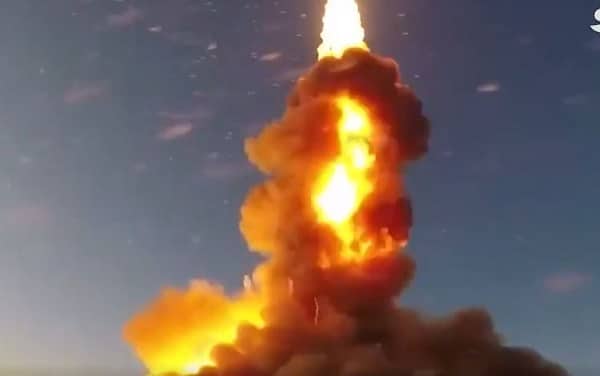
![]()
Russia has been testing missiles for some time but its new ballistic missile is reported to be a “terrifying” satellite destroyer. It has been designed to “protect against air and space attacks” and is said to travel speeds of 9,000 mph.
According to the Kremlin, the new rocket launched from the Sary-Shagan test site in Kazakhstan and completely wiped out the intended test target. Putin's Defence Ministry released footage showing the weapon taking off with a ferocious blast.
Andrey Dyomin, Commander of the 1st Air and Missile Defence Army of the Russian aerospace forces has claimed that the new missile “has reliably confirmed its characteristics in a series of tests.”
However, details of the missile’s precise performance in the test, or intended target, have not been released, enshrouding the weapon in secrecy.
Meanwhile in April, commander John Raymond of the United States Space Command claimed that Russia's extra-terrestrial interceptor missiles pose a challenge to U.S. interests in near space. He went as far as claiming that this Russian system is even capable of destroying satellites in low Earth orbit.
“The threats to US space systems and [their] allies are real, serious and increasing,” warns Raymond. “The United States is ready and committed to deterring aggression and defending the nation, our allies, and US interests from hostile acts in space.”
It has been long known that Russia is developing a mobile long-range interceptor missile named 14Ts033 Nudol. It may be used on the new A-235 missile defence system, which is currently being developed to protect Moscow's airspace.
Experts say it can reach Mach 12, with a 620-mile range and is intended to destroy the warheads of intercontinental ballistic missiles and “spacecraft” in low Earth orbits. Last week, RAF Air Chief Marshal, Sir Mike Wigston spoke up on the subject claiming it would be "negligent" to ignore military developments in space.
He gave his stark warning at an online conference yesterday, suggesting future wars will be “won or lost” in space. Speaking at the UK’s Defence Space Conference, Wigston said: "We have to be ready to protect and if necessary, defend our critical national interests in space."